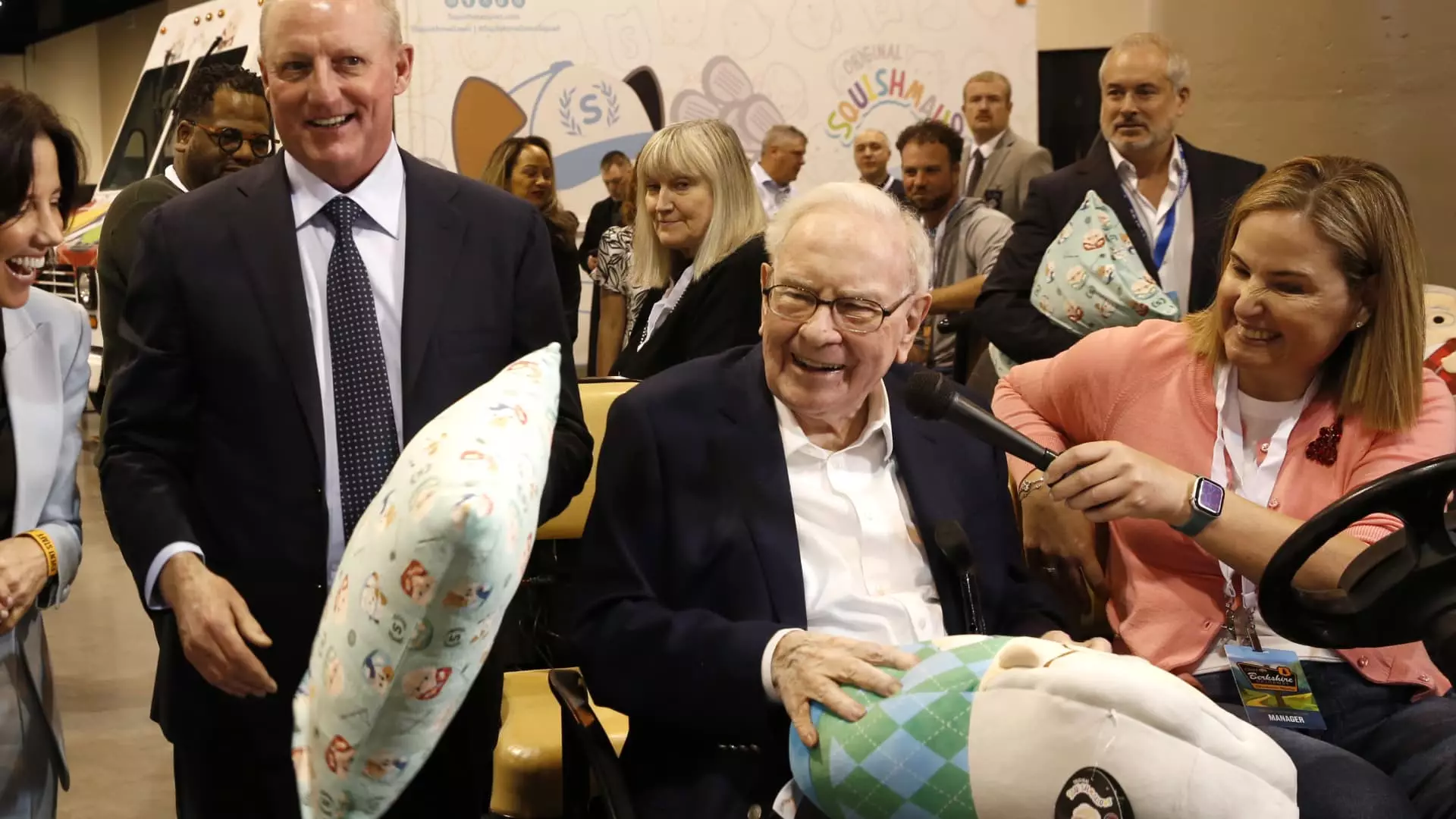Omaha witnessed a historic event on Saturday when Warren Buffett, the enduring figure of investment acumen, revealed his intention to retire as CEO of Berkshire Hathaway by the end of the year, designating Greg Abel as his successor. At 94, Buffett’s wisdom has guided the company through decades of growth, but this new chapter beckons a significant transformation poised to redefine the corporate landscape. Let’s delve into why this change is not only inevitable but essential for Berkshire Hathaway’s future.
The Inevitable Shift of Generational Leadership
Warren Buffett’s leadership has been synonymous with excellence in investing. However, with Buffett stepping back, it’s crucial to recognize the significance of generational change in leadership dynamics. The announcement signifies more than just a change in the CEO; it embodies the shift from old-guard thinking to a fresh perspective that Abel, 62, brings to the table. The time is ripe for new energy and strategies that resonate with a younger demographic of shareholders and consumers alike. While Buffett brought the company success through traditional means, Abel’s hands-on management style is likely to invigorate Berkshire’s subsidiaries and streamline operations in an increasingly competitive landscape.
Assessing Abel’s Leadership Style
Greg Abel is not a stranger to the world of corporate governance at Berkshire Hathaway. With 25 years of experience under his belt, including leading MidAmerican Energy, Abel has demonstrated the ability to enhance operations and take calculated risks. Buffett, expressing confidence in e Abel’s capabilities, affirmed that ongoing success will stem from his successor’s industrious nature. The transition to a more engaged and active management model is commendable, especially as businesses today require agility and responsiveness. Abel’s approach represents a deliberate pivot from Buffett’s more laid-back methodology, which, as Buffett himself admits, may not lend itself well to contemporary business challenges.
Berkshire’s Present Standing: The Time to Evolve
With Berkshire Hathaway recently attaining a staggering market capitalization of nearly $1.2 trillion, one might feel that there’s little need for upheaval. However, amidst an inflationary environment and shifting economic paradigms, complacency is a dangerous gamble. Buffett not only acknowledges the necessity to transition but also assures stakeholders that he will remain available to guide Abel during pivotal moments. This decision underscores a critical point: organizations must adapt or risk stagnation. While Buffett’s legacy will undoubtedly influence Abel, the latter holds the reins to drive innovation and responsiveness that can safeguard against potential market downturns.
The Question of Corporate Culture
The corporate culture that Berkshire Hathaway embodies is a testament to Buffett’s vision. However, the task of preserving that culture in a rapidly changing business environment is paramount. Abel’s eventual succession calls into question how the culture of the Berkshire conglomerate will evolve. Will Abel pivot decisively to modernize the organization while respecting its historical roots, or will he be seduced by the siren song of contemporary corporate trends? The board and stockholders must pay close attention to how this cultural fidelity plays out in daily operations.
Investment Philosophy in a New Era
Both Buffett and Abel have voiced commitment to Berkshire’s long-standing investment strategy rooted in patient value investing. Yet, with a staggering $347 billion cash reserve available for deployment, the challenge lies ahead in striking a balance between prudent investments and seizing timely opportunities. Investors will be keenly observing how Abel navigates this labyrinth, especially as new sectors, such as technology and green energy, gain momentum. It remains essential that Berkshire continues to evaluate high-growth potential while honoring the principles that have defined its legacy.
The Implications of Board Dynamics
The board’s dynamics will undergo scrutiny as the transition unfolds. Buffett’s assertion that he envisions his son Howie as a future non-executive chairman raises questions about potential leadership overlap and whether this could influence Abel’s autonomy. Will the board stand firmly behind Abel’s decisions, or will familial ties to Buffett loom large? The governance structure is pivotal in ensuring that the new CEO has the leeway required to pivot effectively while fostering an environment of accountability and innovation.
A Future of Promise Amid Uncertain Terrain
As the echoes of applause filled the room during Buffett’s final address to shareholders, it was evident that this transition is expected with both reverence and curiosity. The legacy of Warren Buffett cannot be understated; however, embarking on a new chapter led by Greg Abel introduces not only uncertainty but also unparalleled potential. Navigating the complexities of business today requires leaders who embrace change rather than fear it, and the stage is set for Abel to prove that Berkshire Hathaway is more than just the sum of its illustrious past. The next phase may redefine not just the company, but also its influence across global markets, continuing to echo Buffett’s timeless investment philosophy while forging ahead into uncharted waters.

